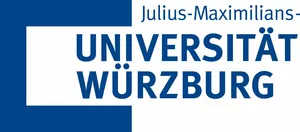Cell and Infection Biology (M.Sc.)
97070 Würzburg
2026
Studienangebot
Cell and Infection Biology (Master)
BioEU Master of Science Programmes
Are you interested to learn about the fascinating complexity of living organisms, from single molecules to global ecosystems? Would you like to become familiar with cell biology, biochemistry, neurobiology, molecular genetics, evolution, ecology, bioinformatics, metabolomics or proteomics, would you like to understand behavior, neuron function, mechanisms of microbial infection, parasiolgy, tumor development or tissue regeneration?The eight BioEU Master of Science Programmes offer you tailor-made -curricula according to your personal interests. Selecting a particular BioEU Master programme will allow you to become a specialist in your chosen field of interest, and, during the master programme, you will be involved in ongoing projects in leading edge research groups either at the university of Würzburg or partner universities. Furthermore, you may directly continue your research activities in a subsequent doctoral programme in a leading edge environment.
Programme Profile: Cell and Infection Biology
The curriculum relates topics of cell and developmental biology with those of infection biology and corresponding disease. The cell biology topics comprise developmental subjects such as tissue regeneration and morphogenetic cell migration, molecular stem cell biology, epigenetic plasticity, multicellularity and environment depending development. Based on general aspects and novel approaches in molecular biology including bioinformatics and computational biology, current research topics in the fields of cell biology, microbiology, biophysics, bioinformatics are emphasized. These include in particular the action of pathogenicity factors of both human-pathogenic prokaryotic and eukaryotic infectious strains and ways to develop strategies against disease spreading.The two selected topics are composed of two theory modules as well as a practical course unit each. Further research training is provided in a selected field of interest, and the students are actively involved in ongoing research projects and learn to independently plan and perform both theoretical and experimental work and finally, to summarize and discuss the results obtained in the thesis.
Objectives and Learning Outcomes
The students learn to understand the complexity of developmental processes of cells and tissues, based on fundamental principles of cell and molecular biology including the control of gene expression at various levels. By studying various forms and “strategies” of infectious particles or organisms, the students become familiar with the principles of strategies to limit the spreading of infectious disease and are able to evaluate infectious agents with regard to biosafety and biosecurity issues. The students are enabled to address scientific questions with regard to cellular organization and development, theoretic principles of infection biology and pathogenicity including principles and mechanistic details on the origin and spreading of infectious diseases. The students learn to perform biohazard risk assessments and to setup appropriate biosafety actions. They are aware of scenarios in research and environment that may be associated with biological hazards. They know to approach scientific problems both theoretically and experimentally, and - based on the results obtained - to further develop scientific models and hypotheses.Further informations
210 weitere Stellen, die dich interessieren könnten

Julius-Maximilians-Universität Würzburg
97070 Würzburg
2026
Deine AUBI-plus Jobmail
Lass deinen Bot für dich suchen! Lege deine Suchkriterien fest und lehn dich zurück. Du bekommst aktuelle Stellen für deinen Traumberuf direkt per Mail zugeschickt.
Suchbot erstellen
Ähnliche Suchanfragen: